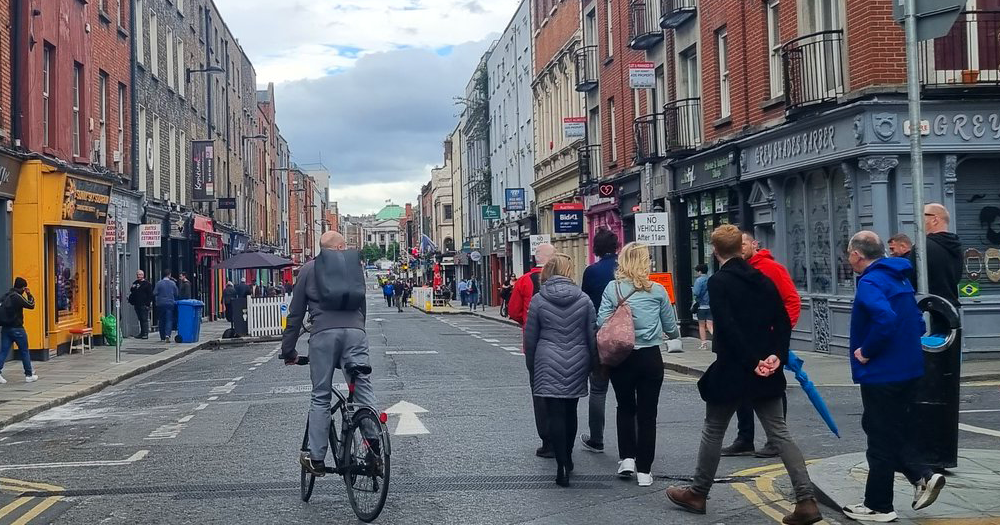We all remember the viral Buzzfeed Video ‘Women Try Manspreading for a Week’ and the subsequent online critique that followed. An onslaught of reaction videos, Twitter threads and hate comments ensued with many men accusing the video participants of misandry. However, all the video showed were women sitting in public spaces – so why the outrage?
Existing within a public space in a gendered body is an incredibly vulnerable experience. I try my best to avoid people approaching me – big headphones, a resting frown or a mask to cover my face. Yet anytime someone does strike up a conversation, there is an incredible amount of guilt involved in telling them to leave me alone because of how I’ve been socialised.
I’m rebelling. I don’t look away when walking toward a man or move to the side for a group of drunk lads taking up the path. My instincts tell me to become small and take up less space, to move my legs when a man sits beside me on the bus. I’m trying to unlearn that presenting feminine requires me to make myself convenient for men.
Despite this, I still have my phone on alert when I walk alone at night. I share my location with a friend or hold my keys between my fingers. I keep my father updated on where my bus is. I don’t want to carry the burden of protecting myself, but I don’t want to be blamed for something happening to me if I don’t take these precautions. I understand that public spaces are not designed to protect me.
Streets named after men tell us that this place is not for me. I constantly monitor my surroundings and remain hyper-vigilant of those around me. The lack of public toilets put anyone else who menstruates, or is pregnant, in an uncomfortable position. The city I travel to and from each day is a hostile environment that has been crafted around the requirements of men.
These public spaces have been designated as places to be shared equally. However, it has instead restricted women’s freedom while enabling the anti-social behaviour of men. I remember waiting for a bus to bring me into town one winter night. I’m covered from head to toe – wearing my Doc Martens, a trench coat and a fluffy scarf wrapped around my face. The only visible flesh is an inch gap between my boots and jeans.
I got cat-called.
The men who shouted at me from their car didn’t do so out of desire, but as a way to make me feel unsafe. They’re telling me I can only exist in their public spaces in so far as they’ll allow it. They control the social fabric that constitutes the gendered binary that exists within these spaces.
This comes without surprise. Despite women being the primary users of public transport, over 50% of us avoid using it at night. Many times after a night out, I have been stuck in town debating with a friend over what would be safer; getting a bus alone at night with drunk men in the hopes that having people around will dissuade anything sinister, or taking a taxi alone and giving control over to a stranger.
I have attended many protests that want to make Ireland a safer place for women to exist within. ‘Reclaim the Night’ has run a variety of night-time walks, calling for an end to gender-based violence and the right for women to walk alone at night. Whilst these protests are in good faith, they neglect to address that as long as public spaces are gendered, they do not belong to us.
© 2022 GCN (Gay Community News). All rights reserved.
Support GCN
GCN is a free, vital resource for Ireland’s LGBTQ+ community since 1988.
GCN is a trading name of National LGBT Federation CLG, a registered charity - Charity Number: 20034580.
GCN relies on the generous support of the community and allies to sustain the crucial work that we do. Producing GCN is costly, and, in an industry which has been hugely impacted by rising costs, we need your support to help sustain and grow this vital resource.
Supporting GCN for as little as €1.99 per month will help us continue our work as Ireland’s free, independent LGBTQ+ media.
